- The Largest Dental University in the World
- The Nippon Dental University School of Life Dentistry at Tokyo
- The Nippon Dental University School of Life Dentistry at Niigata
- The Dental Hospital at Tokyo
- The Dental Hospital and Medical Hospital at Niigata
- The Nippon Dental University College at Tokyo
- The Nippon Dental University College at Niigata
The Largest Dental University in the World
The Nippon Dental University is the only dental university that has two schools of dentistry. Comprising two campuses, one in Tokyo and the other in Niigata, it has two schools of dentistry, three affiliated hospitals, and two junior colleges, as well as a museum. At present, there are about 2,000 students, 1,000 teaching staff, and over 19,800 graduates.
Thus, the university is undeniably the largest in the world.
The Nippon Dental University School of Life Dentistry at Tokyo
-
he Nippon Dental University School of Life Dentistry at Tokyo has a six-year undergraduate curriculum ranging from general education to basic and clinical courses, and including theoretical and practical training that is both effective and comprehensive.
In the hospital affiliated with the university, a comprehensive medical care system has been adopted for clinical training. Faculty members specializing in the four areas of maintenance, prosthetic dentistry, oral surgery, and periodontic diseases are in charge of providing comprehensive dental care for patients. They also instruct students in clinical dentistry, with students working in groups. This approach provides students with hands-on experience and practice in dentistry techniques. In general, this approach has proved to be even more effective than one that emphasizes clinical training immediately after graduation.
Moreover, the Research Center for Odontology has been set up and utilizes EPMA, X-ray analysis, electron microscopy, and isotopic biological experimentation. At the same time, wide-ranging international research activities are being conducted involving the most up-to-date computer systems and the Internet. The computer systems incorporate features such as information retrieval and on-line databases in the library.
-
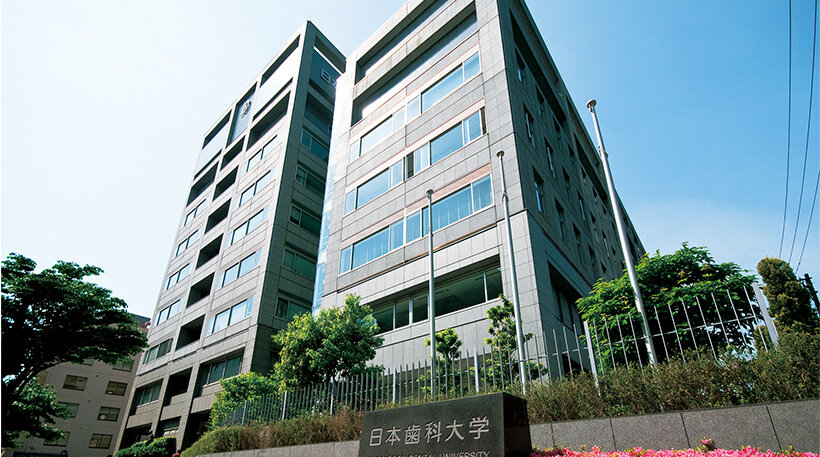
The Nippon Dental University School of Life Dentistry at Tokyo
The Nippon Dental University School of Life Dentistry at Niigata
-
The School of Life Dentistry at Niigata has a six-year undergraduate curriculum, ranging from general education to basic and clinical education.
uring their clinical training at the affiliated hospital, students are provided with detailed and effective education as they rotate through the different departments. In this way, the students can move smoothly on to clinical training after graduation. The school also provides dental care through home visits, which is a first for a Japanese dental university. By having students acquire training and experience through providing home-visit dental care for bedridden elders, the students are being taught the realities and the knowledge needed to prepare for the coming aging society.
Since the school has both affiliated medical and dental hospitals, the students are also provided with hands-on practice in internal medicine, surgery, and laryngology during their clinical training. Through observing surgical operations on digestive organs, treatment at the hospital bedside, and clinical investigation and analysis, the students are in the front line of medical services as they learn. This enhances their appreciation and knowledge of humane and wholesome medical services.
-
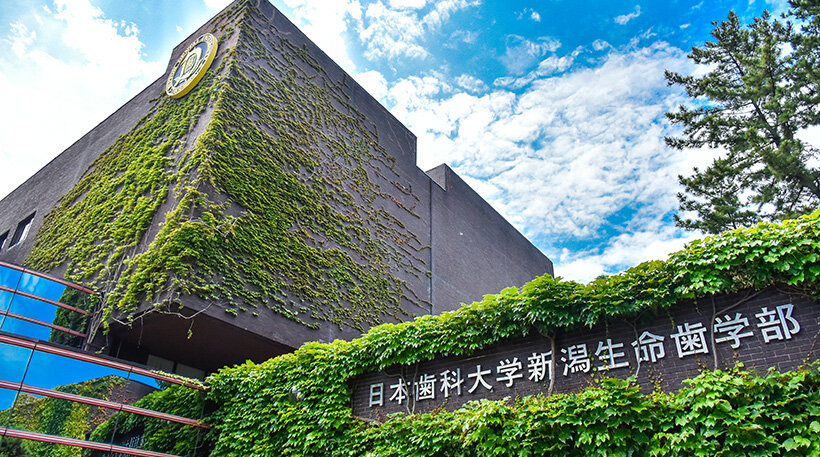
The Nippon Dental University School of Life Dentistry at Niigata
The Dental Hospital at Tokyo
-
The hospital has departments for General Dentistry, Pediatric Dentistry and Orthodontics, Oral and Maxillofacial Surgery, Dental Anesthesiology, General Medicine, and Surgery.
In the Medical Examination Center are clinics for Implants, Psychosomatic Dental Problems, Jaw Articulation, Oral Tumors, Jaw Deformities, Oral Care and Rehabilitation for Medically Compromised and Handicapped Patients, as well as clinics for check-ups and for Snoring and Obstructive Sleep Apnea.
Additional facilities for internal medicine, surgery, and inpatients' treatment allow it to function as a comprehensive hospital. These unique features enable the treatment of patients and the training of future dentists to be pursued simultaneously, and the hands-on training of students is an essential part of the clinical practice curriculum.
-
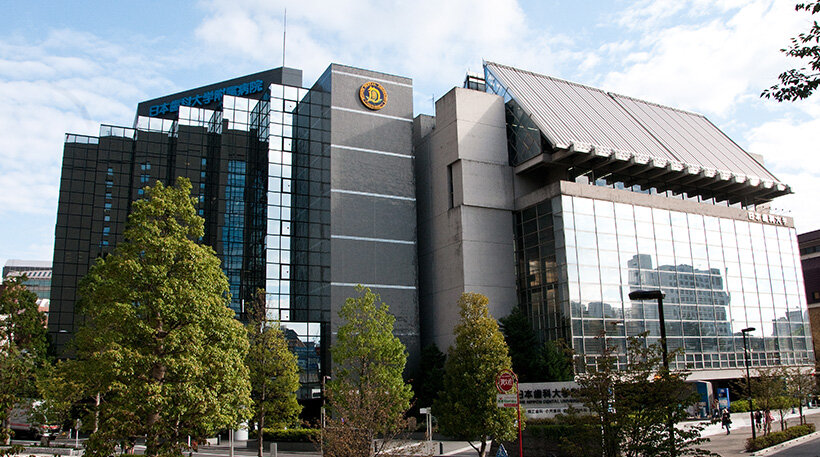
The Dental Hospital at Tokyo
The Dental Hospital and Medical Hospital at Niigata
-
In addition to the excellent Dental Hospital, one important feature of the School of Dentistry at Niigata is the Medical Hospital, for this enables students to receive clinical experience there as well. The fifty-bed hospital was inaugurated in June 1981, and it has three medical departments: Internal Medicine, Surgery, and Otorhinolaryngology.
The Dental Hospital has such departments as the Comprehensive Dental Care Unit, Oral and Maxillofacial Surgery, Dental Anesthesiology, and Overall Physical Monitoring, Orthodontics, Pediatric Dentistry, and Radiology.
In the Medical Examination Center, there are the Disabled Children's Center, the Special Patients' Care Center, the Oral Implant Center, and the Clinic for Snoring. In the Special Outpatient Center, there are the Clinic for Teeth Whitening, the Clinic for Periodontic Care, the Clinic for Sports Dentistry, the Clinic for Breath Odor, the Clinic for Jaw Articulation, the Clinic for Dry Mouth Treatment, the Clinic for Dental Allergy, the Clinic for Tranquilization, and the Clinic for Jaw Reform and Bite Adjustment. The Dental Hospital functions as a comprehensive medical facility for the teeth, the jaw, and oral and maxillofacial treatments, with fifty beds for inpatients.
In addition to the Dental Hospital, the Medical Hospital has departments of Internal Medicine, Surgery, and Otorhinolaryngology, where students gain clinical practice.
-
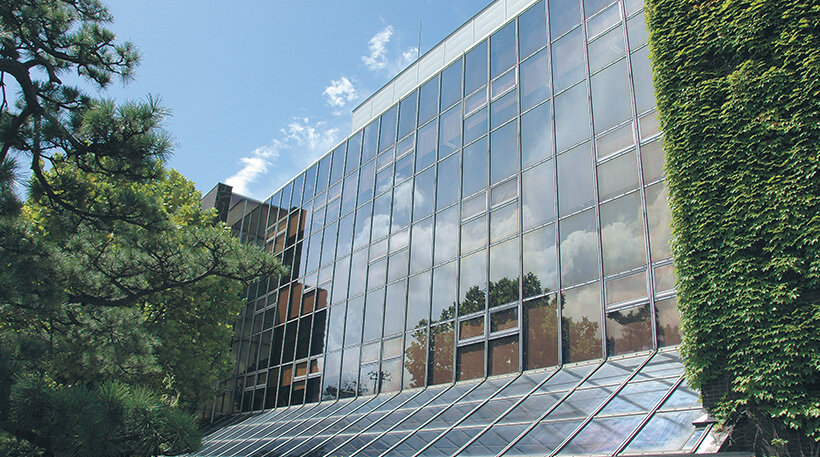
The Dental Hospital and Medical Hospital at Niigata
The Nippon Dental University College at Tokyo
-
In recent years, along with changes in the social environment, particularly the aging population and the increase in numbers of people acquiring higher education, dental treatment has seen a structural change with the introduction of the integrated medical team. Accordingly, there is a growing demand for specialized technicians with a wide knowledge of general medicine.
In response to the demand for highly trained dental technicians and dental health carers, the Junior College at Tokyo was established in 2005 as a two-year college affiliated with the Nippon Dental University.
The college emphasizes the importance of self-improvement through academic research and offers programs to encourage students to learn specialized skills and knowledge and to develop their full potential. In April 2006, a postgraduate course was inaugurated.
With the collaboration of the staff of the Nippon Dental University and its affiliated hospital, the Junior College aims to provide the educational environment needed for acquiring professional skills and the mental attitudes essential in providing dental treatment.
-
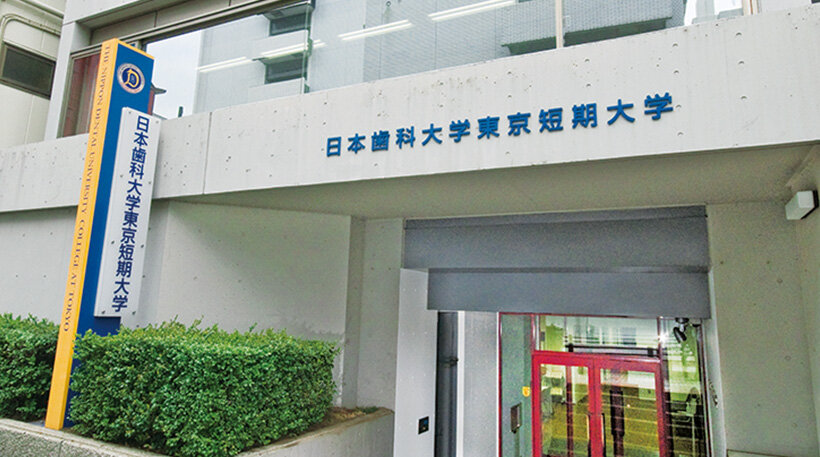
The Nippon Dental University College at Tokyo
The Nippon Dental University College at Niigata
-
The Affiliated School of Dental Hygiene at Niigata, founded in April 1983, was upgraded to become a junior college with a Dental Hygiene Course four years later.
During their three years of study, in addition to the various general courses expected of junior colleges, students receive ample training in specialized subjects under the guidance of the fine teaching staff. The clinical practice in the latter part of the course is undertaken in the Dental Hospital using the most up-to-date equipment and provides a firm basis of knowledge under the direction of the excellent specialist dentists and hygienists of the dental faculty. In this way students achieve a concentrated and sure level of skills, habits, and approach.
In 1997, a postgraduate course was set up, and in 1998 a course to gain qualification as a "home helper" was introduced to allow dental hygienists to contribute to medical welfare services. In this way, the scope of graduate activities is steadily increasing.
-
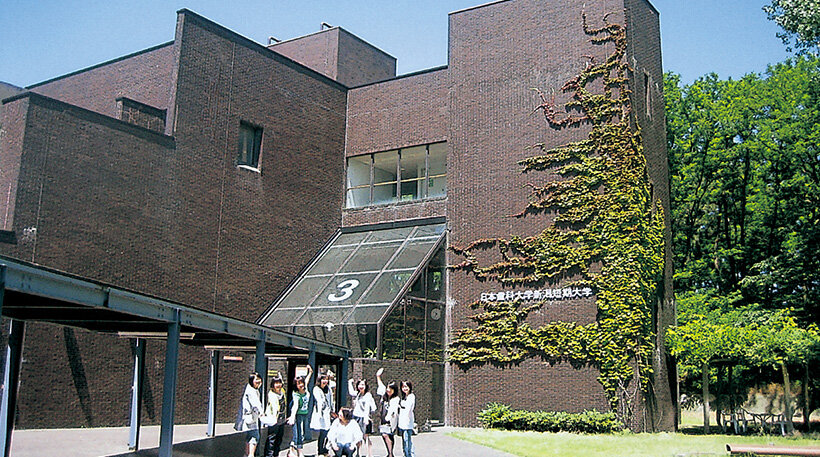
The Nippon Dental University College at Niigata


